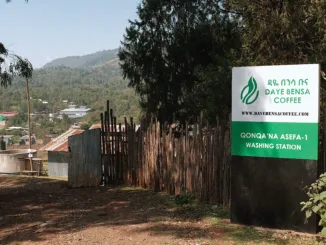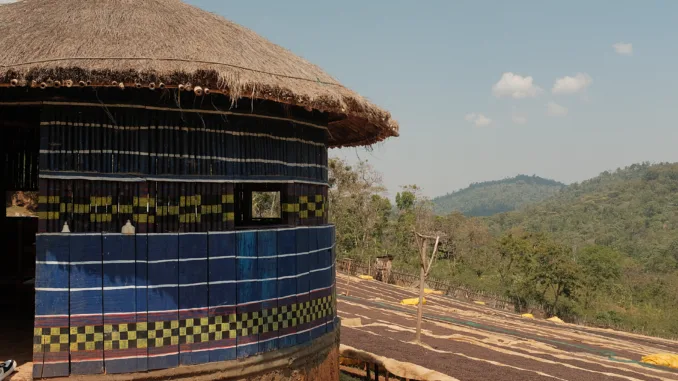
With washing stations serving thousands of smallholder coffee producers, Primrose Coffee Exporters is supporting specialty excellence in Ethiopia.
BY MICHAELA TOMCHEK
SPECIAL TO BARISTA MAGAZINE
Photos by Michaela Tomchek
Ethiopia, as we know, is the homeland of coffee, and coffee maintains a stable pulse throughout this magnificent country. The fifth-leading producer of coffee, Ethiopia actually drinks half of what it produces. A quarter of the population (roughly 15 million people) relies on coffee as a source of income, growing the crop throughout Yirgacheffe, Sidama, Guji, and other prominent regions.
Farmers are generally growing coffee on farms smaller than one hectare, known sometimes as “garden coffee.“ Trees grow wild near homes and in small plots intercropped with enset, or false banana. During the harvest, farmers will gather their cherries by hand, and deliver them to their nearby washing station. These washing stations are normally run by some sort of exporting group that then process, sort, and mill the coffee to be exported or sold within the country. The export-standard coffee must be exported, and the below-standard coffee is consumed locally.
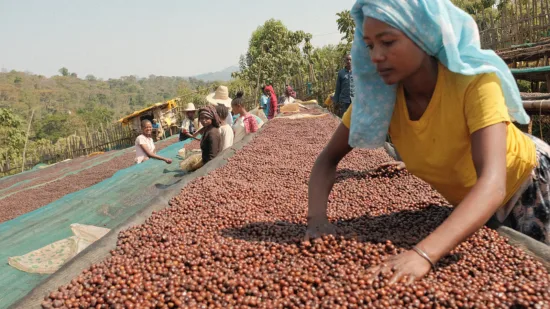
One of these pivotal exporting groups is Primrose Specialty Coffee, which started its operations back in 2010 with husband-and-wife duo Mr. Abreham Mengiste and Mrs. Meseret Workneh. Both began Primrose with already more than 20 years of coffee experience.
How Primrose Operates
Andualem Workneh, Meseret’s brother, is the general manager for Primrose. “Primrose works with over 3,000 farmers in the Yirgacheffe and Guji regions; however, via vertical integration, we also collect coffee from different partner suppliers,” Andualem says. The company also works with farmers in Sidama. Primrose has several washing stations, each with their unique name and icon: Yirgacheffe Amenderaro Konga, Yirgacheffe Koke Shalaye, Yirgacheffe Haru Suke, Yirgacheffe Nenke, Yirgacheffe Gargari Gutity, Yirgacheffe Beyou Gersay, Yirgacheffe Aricha Wubanchi, and Guji Muje Mesina.
Farmers are typically paid right away, according to Andualem. He says, “By the end of the year, we will pay a premium amount based on the quantity they supplied.” Coffee is a good source of income, but farmers also grow other vegetables and fruits for their personal consumption and to sell at local markets.
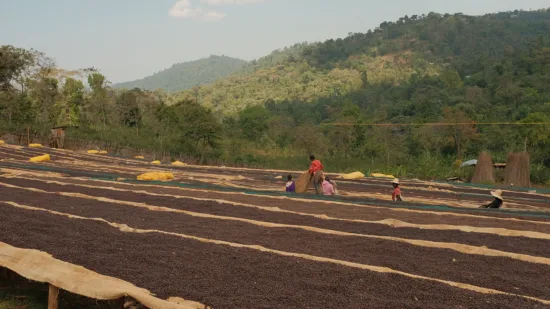
Giving Back to the Community
Primrose is constantly seeking ways to support the many farmers they work with. For instance, in Guji, Muje Mesina, in conjunction with an Australian partner, Primrose was able to build two water wells to supply clean water to the community. In Yirgacheffe, Konga Amederaro, a local school, was expanded to construct more classrooms, and school supplies are donated to the students. Various community projects throughout the Yirgacheffe region are supported by Primrose, based on the local administration’s demand.
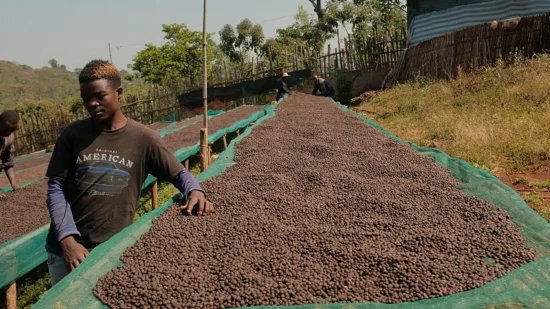
Fermentation Methods
In addition to traditional natural and washed coffees, Primrose is working with more experimental processing methods. They’ve mastered various honey methods: black, red, and yellow honey. They have refined their anaerobic natural fermentation method, creating a vibrant and juicy cup. Primrose has also successfully produced a carbonic maceration coffee. Lastly, the company has begun to utilize a method called the super natural process, which is where cherries are heavily layered to ferment on beds when drying in the open sun and being moved constantly.
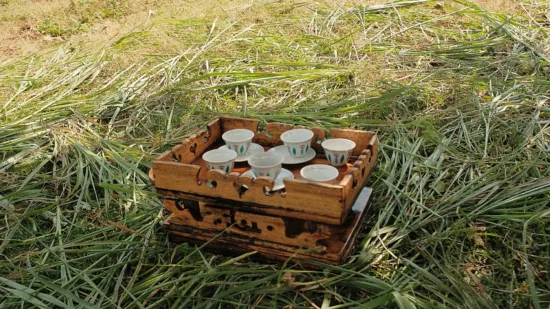
Coffee for Locals
Primrose also has a sister company called Honeyed Drip Trading Plc. They own a coffee roastery and café called Zing Coffee, connected to their office and lab in Addis Ababa. They roast and brew Primrose coffee and serve it to the locals to enjoy—a wonderful opportunity to taste some excellent coffee!
By working with thousands of producers for processing, Primrose is able to send exceptional coffees throughout the world and is helping to ensure a bright future for coffee in Ethiopia.
ABOUT THE AUTHOR
Michaela Tomchek finds coffee an important part of life and the world. She is an appreciator of the crop, the producer, and the many cafés throughout the world serving beautiful beverages. Currently, she writes about coffee, hoping to spread her joy across the globe.
Subscribe and More!
Out now: It’s the February + March 2024 issue of Barista Magazine! Read it for free with our digital edition. And for more than three years’ worth of issues, visit our digital edition archives here.
You can order a hard copy of the magazine through our online store here, or start a subscription for one year or two.



